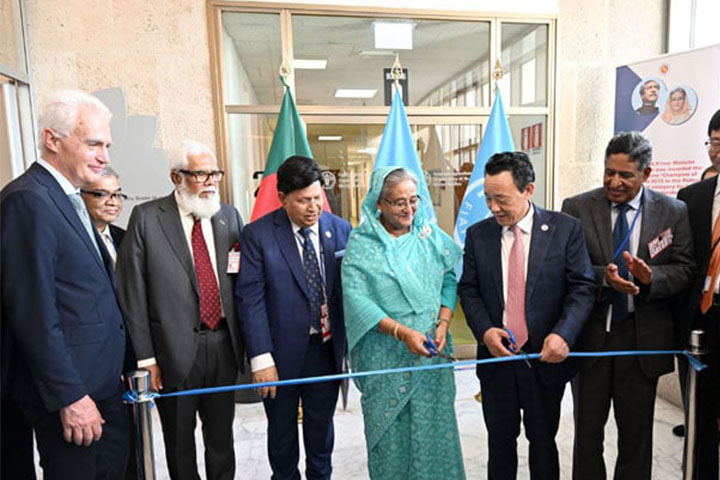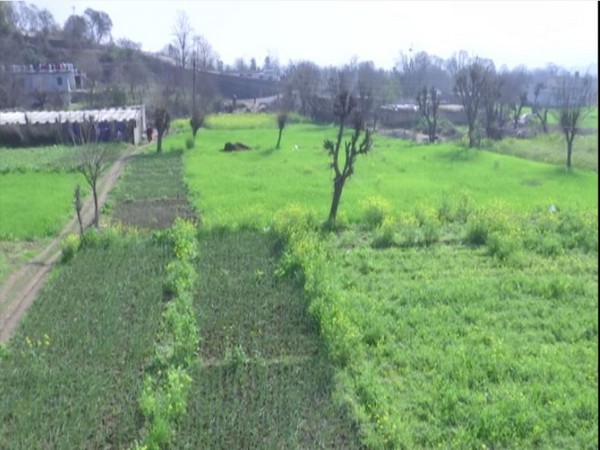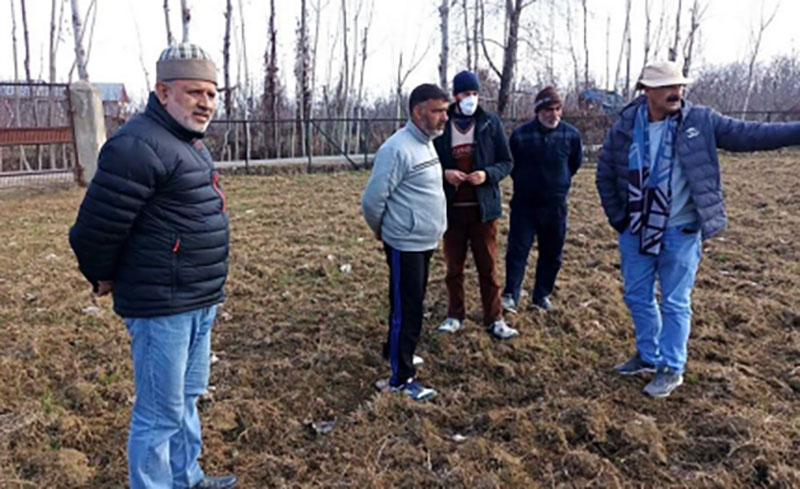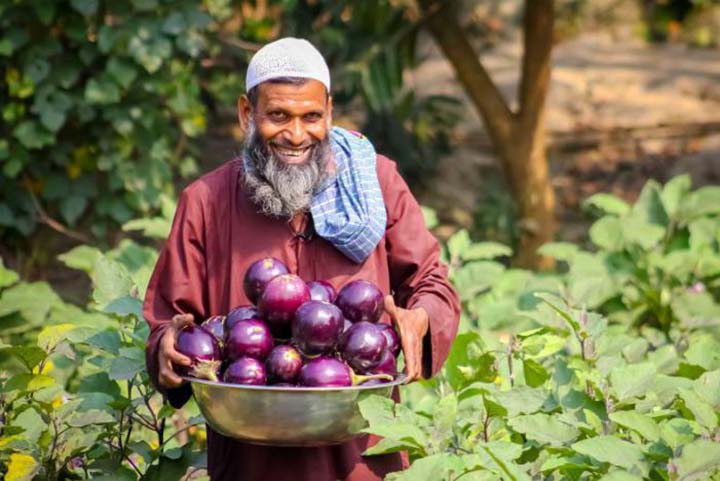Jammu and Kashmir's agriculture exports making waves internationally
Jammu and Kashmir Union Territory is fast becoming the export hub for agriculture and allied goods and the trade and export policy (2018-2028) along with numerous government schemes has given impetus to efficient production and marketing strategies, creating new benchmarks for J&K in the international market.
In the last three year, the Union Territory has witnessed a record-breaking growth of around 55 percent in exports. A large chunk of this percentage comprised of agricultural goods.
Many export success stories are making rounds in Jammu and Kashmir. Agri-preneurs have birthed unique products such as cold saffron beverages, dispersible saffron kehwa tablets, apple chips, apple powder, walnut butter, and a mechanized unshelled walnut processing chain.
J&K's major agricultural exports include apples, barley, cherries, corn, millet, oranges, rice, peaches, pears, plums, walnuts, almonds, saffron, sorghum, wheat, and vegetables. The exotic vegetables propagated for export to Europe include broccoli, brussels sprouts, asparagus, lettuce, and red cabbage.
Renowned scientists and policy planners of the country under the chairmanship of Dr. Mangala Rai are preparing a futuristic roadmap for accelerated development of agriculture and allied sectors.
70 percent of J&K's economy is agriculture-based, so there is immense scope for harnessing the real potential of agriculture and allied sectors. The idea is to invest in crops that provide local food security and commercial export value. Value addition to Agri products, their processing, packaging, and market outreach are being planned for the maximum profit per input.
A month back Lieutenant Governor Manoj Sinha inaugurated a two-day multi-stakeholder convention on the holistic development of agriculture and allied sectors at Sher-i-Kashmir International Conference Centre (SKICC) Srinagar. It requires all stakeholders' concerted effort to achieve Prime Minister Narendra Modi's vision for J&K - Food Security, Self-Sufficiency, and Global Leadership in Agriculture.
Under the PMFME (Prime Minister Formalization of Micro Food Processing Enterprises) scheme of "One District One Product" the singular focus of J&K's districts will be on the production of- Jammu - Dairy Products; Rajouri - Spices; Poonch - Mutton and Poultry processing; Kishtwar and Doda - Walnut processing; Ramban - Honey processing; Udhampur - Pickles and Jam; Reasi - Organic vegetables; Kathua - Spices; Samba - Mushrooms; Anantnag - Trout fish; Pulwama - Saffron; Shopian - Apple; Kulgam - Apple and Spices; Srinagar - Flowers; Budgam - Exotic vegetables; Baramulla - Dairy products; Kupwara - Walnut; Ganderbal - Honey; and Bandipora - processed Poultry and Mutton.
Beekeeping is one of the oldest employments in the state. Locally grown honey has been traded for centuries given the flora of the Valley. Beekeeping also allows the production of propolis, beeswax, bee-venom, pollen, and royal jelly.
As India is the sixth major natural honey exporting country, Beekeepers in the Valley have a ready base to capture international markets like Germany, USA, UK, Japan, France, Italy, and Spain. The Prime Minister's Sweet Revolution for beekeepers is a sure strategy to increase the farmer's income from as little as 10 percent to 80 percent.
In July the Sher-e-Kashmir University of Agricultural Sciences and Technology (SKUAST-K) in collaboration with Vaikunth Mehta National Institute of Cooperative Management (VAMNICOM, Pune) organized a four-day Agri export marketing training for Cooperatives and FPOs (Farmer-Producer Organization Scheme).
Such training programs provide handheld support to farmers who are new to the export business. The participants were endowed with comprehensive knowledge and skills in various aspects of international marketing with a special focus on exporting apple, walnut, and saffron crops. To increase farmers' income, SKUAST-K offers many such short-term vocational courses for skill development in the Agri-processing sector.
As J&K is known to be a treasure trove of herbs, it is emerging as a brand name in the international market. Some of the widely exported herbs are: Dioscorea deltoidea (life-saving-steroids); Echinacea angustifolia (immune system stimulants); Hypericum perforatum (anti-depressant); Withania somnifera (nervous disorders); Aconitum heterophyllum (astringent/anti-diabetic); Pyrethrum (insecticide); Atropa belladonna (antispasmodic); Podophyllum (anti-cancer); Rosa Damascena bulgaria (fragrance); Levendula officinalis (aroma); Salvia sclarea (perfumery); and Cymbopogon/Lemongrass (medicinal, aromatic).
The Union Territory is also witnessing a revolution in the cultivation of a particular, highly demanded crop - Lavender. It is farmed in all 20 districts of Jammu and Kashmir as J&K offers the exact climatic conditions the crop demands.
Farmers are switching to the cultivation and processing of lavender because it can earn them five times their average income on the same land. The purple blossoms are used for their therapeutic value in form of oil and tea, nutrition, perfumery, and medicine value in homeopathy and Ayurveda.
With the efforts of the Department of Agriculture, traditional farmers in the Valley have switched to high-density fruit orchards like apples and Italian pears. Horticultural produce of J&K has earned praise worldwide for its quality and taste.
In the current financial year, the Lt Governor has emphasized on organic and natural farming to maintain soil health and cater to the growing demand for chemical-free produce. Organic fertilizers like compost manure, green manure, bone meal, biological pest control, and fostering of insect-eating rodents, in combination with planting techniques such as crop rotation, mixed cropping, and companion planting are encouraged.
Last year, the UT invited delegations from the gulf and the Middle East to showcase its agricultural produce. Kashmiri Saffron, Mishri variety Kashmiri cherries, Mushkbudji fragrance rice, Acacia honey, and Seabuckthorn (juice, pulp, oil, and tea) were sampled. They were instantly pre-ordered by all significant hypermarkets such as the Lulu Group. The geographical indications (GI) tag acting as a mark of trust has immensely helped to raise the export volume.
By creating the necessary eco-system to promote Atmanirbharta and collaborating with key stakeholders in the Agri exports value chains, Jammu and Kashmir is looking at a bright future.
Source: ANI
18 Aug 2022,18:27




















 Live Tv
Live Tv









